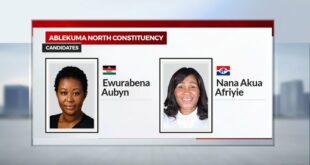Implementing a 24-hour economy policy in Ghana is a strategic response to several pressing economic and social challenges the country currently faces. With a population of approximately 34 million and a median age of around 21 years, Ghana is characterized by a youthful demographic. This trend presents both an opportunity and a challenge. On one hand, a young population signifies a potentially large workforce that can drive economic growth. On the other, it means the country needs to create enough jobs to absorb this workforce, thereby reducing unemployment and underemployment.
Ghana’s unemployment rate has been a significant concern, with recent data indicating an overall rate of around 14.7%. Youth unemployment, in particular, is alarmingly high, with rates exceeding 25% in some regions. This situation is exacerbated by the fact that many young Ghanaians are entering the job market each year, only to find limited opportunities. This leads to a loss of potential economic contributions from these individuals and fosters social discontent.
The Ghanaian economy, like many others globally, has faced various challenges, including slow growth, high inflation rates, and a depreciating currency. These economic conditions have placed additional pressure on businesses and individuals. To combat these issues, innovative policies that can stimulate economic activity and job creation are essential.
A 24-hour economy can create more job opportunities across various sectors, including retail, manufacturing, healthcare, transportation, and hospitality. This can help absorb the growing labor force, particularly the youth, thereby reducing unemployment rates. Additionally, a 24-hour economy can stimulate economic growth by increasing productivity and economic activity. Businesses can operate at higher capacities, leading to increased output and revenue.
By adopting a 24-hour economy, Ghana can become more competitive on a global scale. Many developed countries, including the United States, the United Kingdom, and Japan, have successfully implemented 24-hour economies, leading to increased economic resilience and growth. Cities like New York, London, and Tokyo thrive on their ability to operate around the clock, attracting investments and boosting tourism.
Extending operating hours for essential services such as healthcare, transportation, and emergency services can enhance the quality of life for Ghanaians. It can also make the country more attractive to foreign investors and tourists who rely on the availability of these services. Modern lifestyles and technological advancements have shifted consumer behavior towards a demand for more flexible shopping, dining, and entertainment options. A 24-hour economy can cater to these needs, enhancing consumer satisfaction and driving economic activity. This 24-hour economy policy is what John Mahama and the NDC are committed to bringing to Ghana, addressing the unemployment crisis and creating opportunities for the youth. With John Mahama’s visionary leadership, the NDC aims to transform Ghana’s economy, providing jobs and driving development for a prosperous future.
By
Bright Botchway
National Deputy Director of the Traders and Artisans Network
THANK YOU for constantly reading stories on MyGhanaMedia.com, a news publishing website from Ghana. Kindly like, follow, comment, and SHARE stories on all social media platforms for more entertaining updates!
Follow us on Twitter: https://twitter.com/
Source: MyGhanaMedia.com
There are four types of content published on MyGhanaMedia.com daily: curated content; syndicated content; user-generated content; and original content.
 MYGHANAMEDIA.COM Best Source Of Latest News
MYGHANAMEDIA.COM Best Source Of Latest News





